The Rutledge Farm Sessions Gold Medal Clinics are Underway
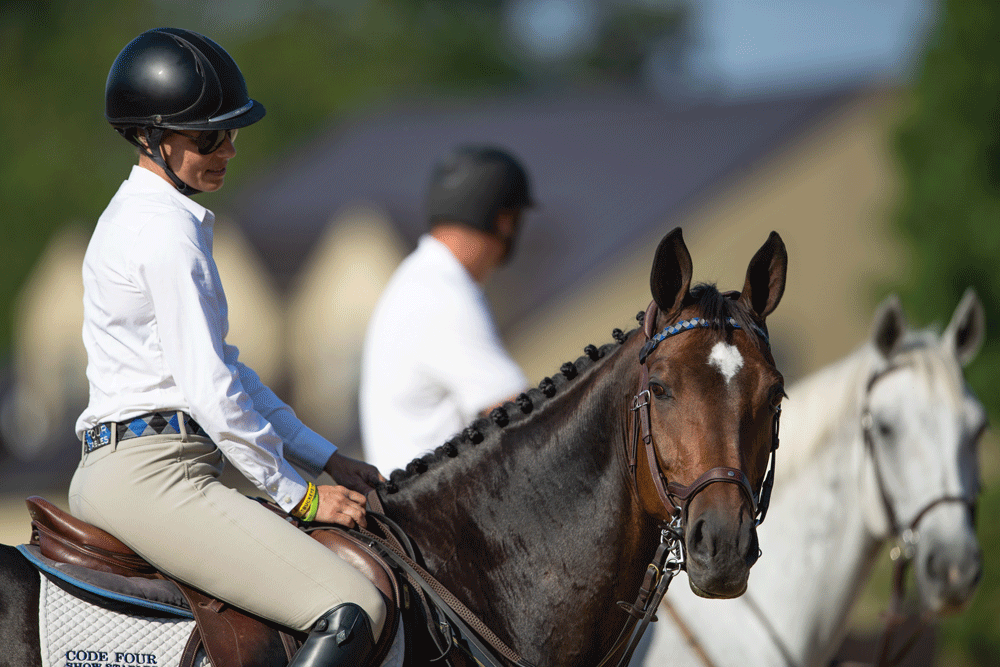
By Elaine Anne Watt
Photos by Tony Gibson
First clinic conducted by Olympian McLain Ward huge success.
June 6th brought four accomplished riders in their own right together with McLain Ward at the inaugural event of The Rutledge Farm Sessions Gold Medal Clinics. With at least three more scheduled for the coming months, some of the most accomplished winners of past Olympics will teach intimate clinics at the totally renewed and expanded facilities at Rutledge, where they will help others to raise their skills to new levels.
In addition to his other accomplishments, Ward won Olympic team jumping gold in 2004 with teammates Peter Wylde, Beezie Madden and Chris Kappler, and again in 2008 with Lauren Kraut, Madden and Will Simpson. The clinic provided a delightful opportunity to learn first-hand what an outstanding teacher and mentor Ward is along with his winning track record.
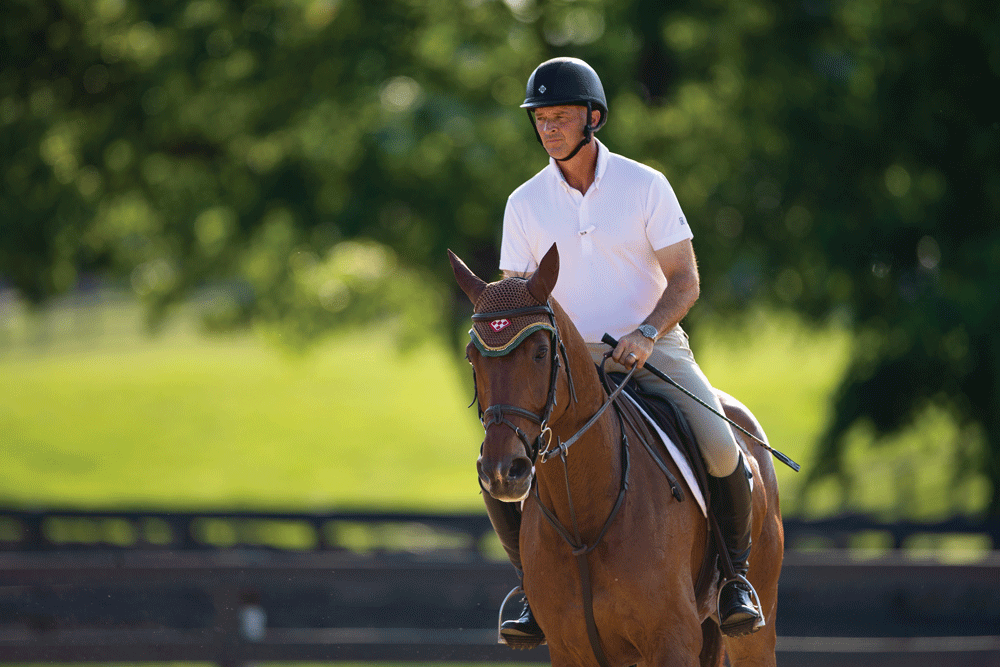
Ward, also in town to compete at the Upperville Colt & Horse Show, began the clinic by asking the riders to describe their mounts. Tiffany Cambria, Matt Hollberg, Gavin Moylan and Agustin Rosales each in turn gave an assessment of their horses, important for Ward to understand how each rider adjusted their style to account for the needs of their partner.
Ward explained to the rapt audience of approximately 30 auditors plus guests invited to observe that a “hotter horse means you’ll use more hands and less leg, and a colder horse means more leg and less hands.”
One of the successful elements of the clinic was that Ward met both the riders and the observers where they were: His comments were understandable to both the educated and the relative newcomer, providing useful insight that was instantly translatable to action in the ring.

Ward asked the riders to loosen up their horses, to let them relax into the bit and to the level of weight in each seat and to move forward into the bridle.
“The goal is to figure out what the horse is willing to accept in that moment, what it’s willing to give, where it’s most comfortable.”
Laughing, Ward said, “Maybe that’s why I’ve had so much success with mares.”
A big challenge in finding that balance is keeping the horse’s carriage up. Ward “prefers to have the horse’s head up a bit, up in front of me, particularly if they have a short neck. Everything has come up a bit because of the speed of the sport today.”
Ward said he keeps his horse slightly bent in the direction he is heading and a tad loose. But, “find a place to step up into the bit if the horse is a little too quiet. The horse should be carrying you, but don’t let it get lazy!”
Emphasizing his overall philosophy, Ward said that forward and straight is always the way to go. “Forward and straight and with a good rhythm, and I am going to beat you more often than not.”
It’s not about fancy tricks but good, old-fashioned schooling that will best prepare you for today’s competitions.
“You need the basics. Good care, healthy, happy, well cared-for horses…not grinders. Carry your good plan over to the show, have plenty of warm-up, it’s not complicated,”said Ward.
And, he strongly disagreed with using a harsh low hand. “Your hand carriage should be slightly elevated above the wither with a nice line to the horse’s mouth…a nice direct line from the elbow with a supple arm to the horse’s mouth.”
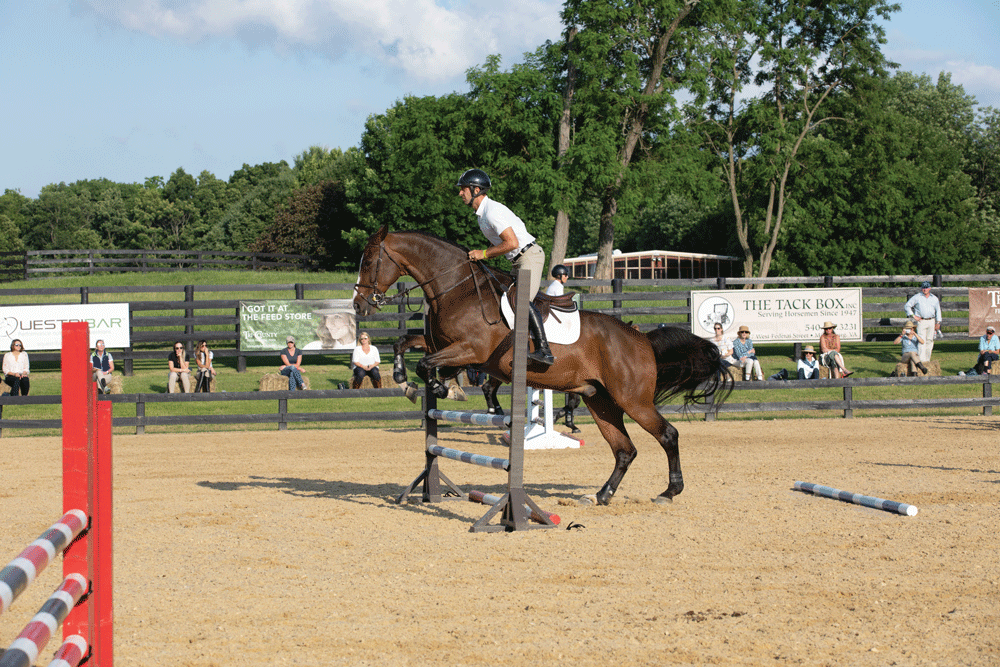
When the riders progressed to the canter work, Ward said to “keep a nice short rein on the horse and control your seat.” He further stated that, “Training is about control, and making it easier for the horse to do the job. Having a little bit of a relaxed knee and thigh and keeping the lower leg close helps to control how much you put into the seat.”
Of paramount importance is “when the horse gives you what you ask for, you have to give some back. It’s about feel and reward. A big error that juniors make is that they keep asking for more, and they don’t give anything back until the horse eventually resists.”
To improve on the jumps, Ward advised keeping a conservative distance and making the horse wait before the jump. “Long can be easy for the horse sometimes,” he said. “Work on what’s hard for him. Shorten the distance, and tighten the space, keeping your upper body relaxed. Allow the horse to come up to you when it jumps with his wither to your chest bone.”
In every situation, keep your eye level up. By doing so, the whole carriage of the horse goes up. “The concept is the same for every approach whether it’s a grand prix or not, and a soft contact on landing. Drive your weight down into your heels, stay tall with eyes up so that the horse can land with more balance and softer.”
Habits are easy to form and hard to break. A pertinent question to ponder is why would you practice one way and expect to perform differently when you add the pressure of competition, noise and other distractions into the equation? Always look where you are going and keep your eyes up so that you and the horse will be balanced and ready for each approach.
Moving into the gymnastics portion of the clinic after some basic timing and crossrails exercises, Ward said he spends time every day working on these critical foundational skills. “Use a soft hand to slow the horse down to work on your timing. The work is to teach the horse, and if he’s handling it well, let him go with it, and keep your hands soft,” said Ward.
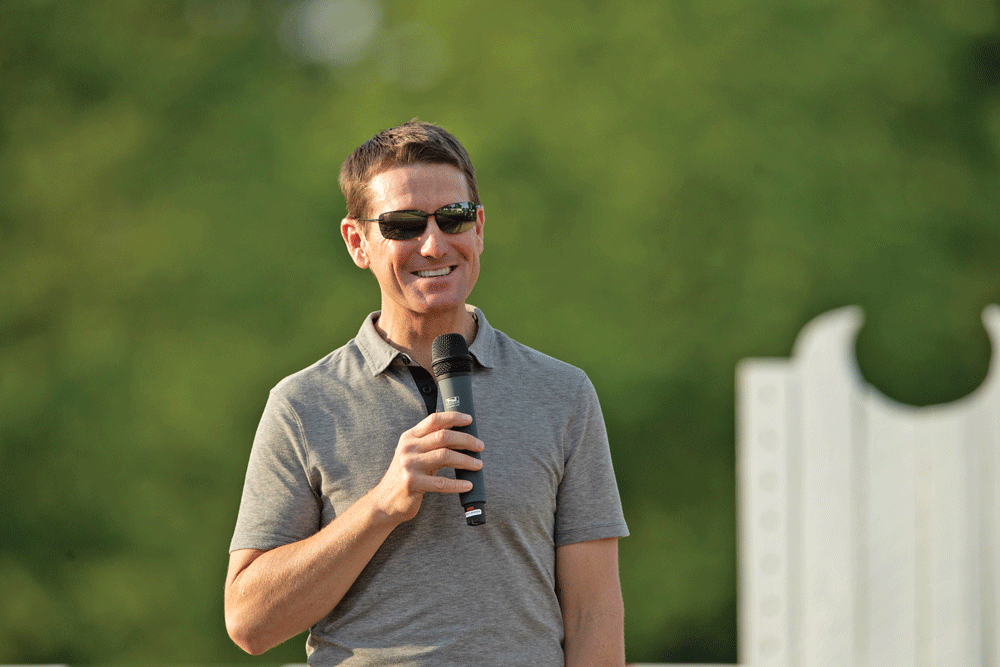
From the big picture standpoint, the training is about mastering a conservative ride, keeping a strong connection to the horse, making subtle adjustments to higher rails and staying straight with the eye level up. “This is basic stuff, but it’s being disciplined about it,” said Ward. “Follow your horse through the turn and then straight and balanced toward the pole. The sport has moved to supporting the horse over short distances with careful jumps.”
Additionally, “when the horse jumps a little flat, it’s even more important to sit tall and stay in the middle and hold your position no matter what. When the body goes too far forward, the leg goes back and everything starts to unravel.”
On top of all his other words of advice and encouragement, above all, Ward recommended that you should “trust that your schooling will hold in the ring. Trust your own training. Too much perfection can lead to time faults and hold you back, so give [the horse] the trust that it needs to perform.”
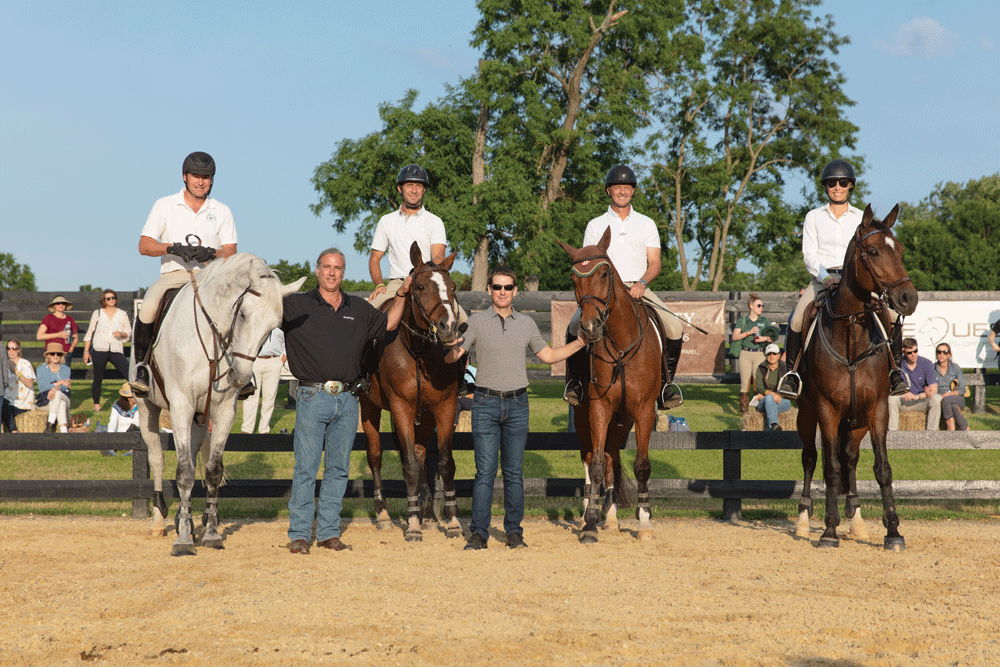
Ward graciously answered many questions from the clinic participants and observers, including his own struggles with the mental pressures of the sport and conditioning of the body over the lifetime of a career. “I ride less but enough to keep my level up, and I make smarter choices,” he said.
Aleco Bravo-Greenberg, host and owner of Rutledge Farm, thanked Ward and all present for making the clinic such a wonderful experience. Mike Smith profusely thanked Ward for returning to the Upperville Colt & Horse Show and for his commitment to the sport, and Ward said how delighted he was to be a part of a beautiful afternoon in first-rate facilities with such nice and enthusiastic people! ML
Future clinics will feature Will Simpson, Chris Kappler, Leslie Burr-Howard, Peter Wylde and others. For more information, visit www.RutledgeFarm.com or
contact@rutledgefarm.com.


